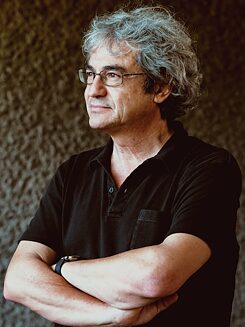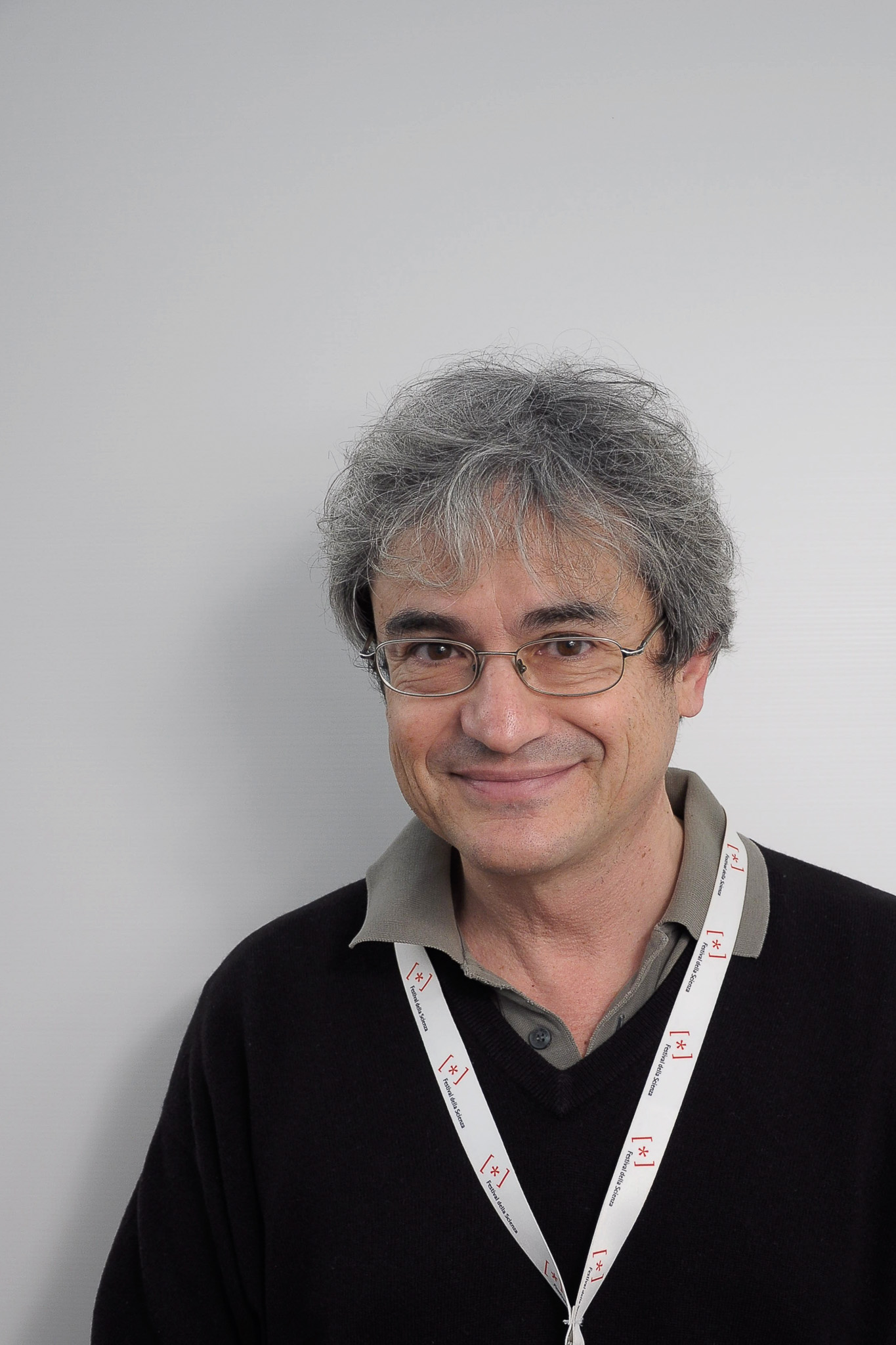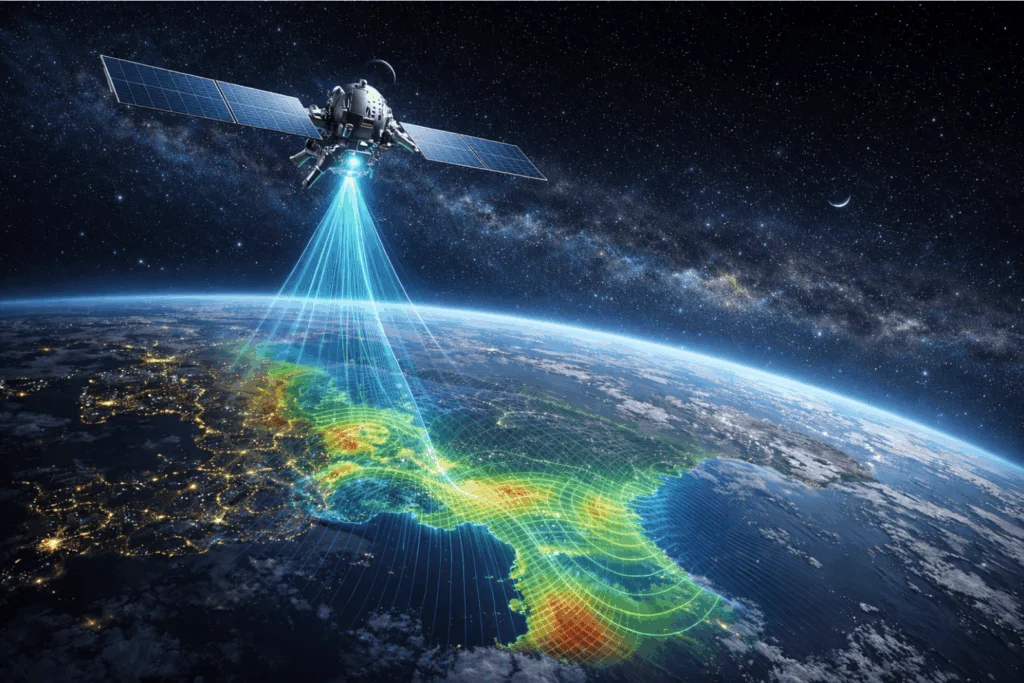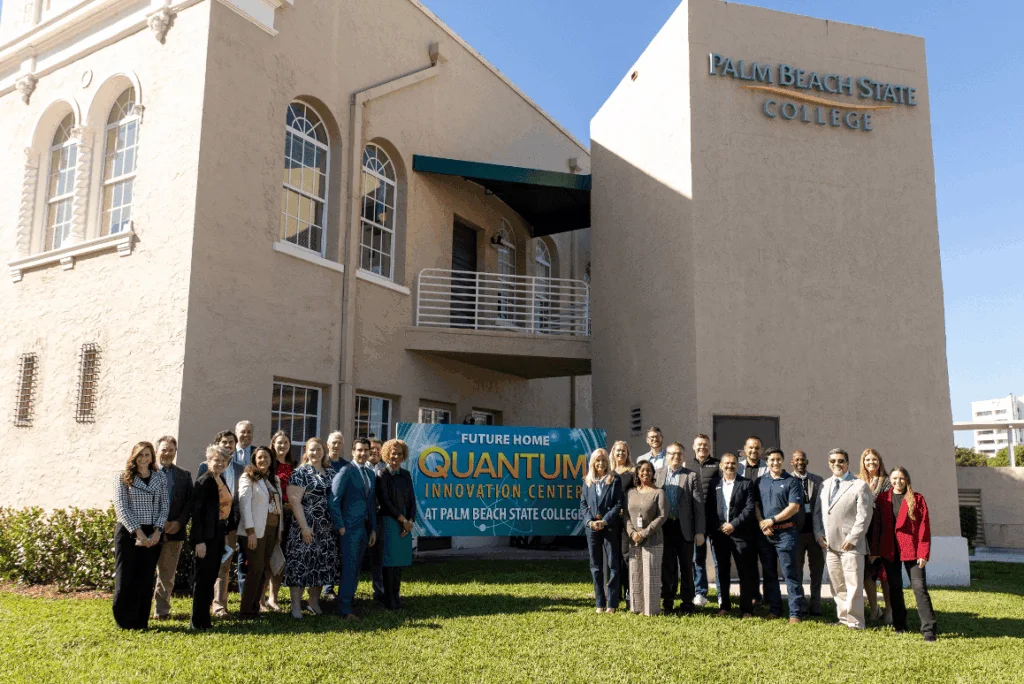Image Courtesy: Jamie Stoker
He’s been called the “poet of physics” – and has devoted large parts of his life to explaining what appears on the surface to be the unexplainable.
Rovelli’s book, Helgoland, attempts to make sense of the muddle that is quantum mechanics by telling the stories of those who came up with the theories that now help decipher – somewhat – the complexities of the way the world works. “Quantum mechanics is very strange, and not known to the majority of people,” Rovelli admits. “I wanted to move the subject a little bit more to the people, both to the general public, but also to the intelligentsia, which is not a scientific one.”
He chose to do so through the lens of how the ideas that act as the cornerstone of the field were formulated, and who was behind them. But he also chose to reflect the conversations happening within the field back at those who are actively discussing it now.


Carlo Rovelli© Jamie Stoker
“Scientists are materialists, which means that they believe everything is made by matter.” Rovelli explains. “Everything is made by atoms. Science and mechanics think that everything is just little particles bouncing, one way or the other.” But quantum mechanics scratches below the surface and hints at a deeper complexity that can’t be explained away in such simplistic terms.
“That’s what the core of the book is about: the mechanics are telling us that it’s relations all the way down,” he says. “We have to think of objects – including atoms – as existing because they interact with something else, as nodes in a network.”
It’s that thinking which underpins the idea of quantum mechanics – that no man or object is an island, but instead we all interact with and respond to each other. That has hugely practical implications, says Rovelli. “The real message out of quantum mechanics is exactly how much thinking in terms of relations is a more powerful way of thinking in reality than thinking in terms of objects,” he says. “Everything is quantum,” says Rovelli. “It’s not that there are quantum things and not-quantum things. A table is a quantum object.”
Yet to admit that these things are quantum requires a huge admission from scientists (who are used to dealing in absolutes) that we don’t know for certain the answer to some questions. “That’s the practical strangeness of quantum theory,” he says.
It’s a brave thing to do, to admit that we don’t know the answers to questions we once thought – and still expect – to have certainty about. “Quantum mechanics is not a young theory, right?” says Rovelli. It’s approaching its 100th anniversary in 2025 though the theory was constructed, bit by bit, over a number of years.” One might expect, that after a century, all the things had been digested – but they’re not, not at all. This quantum behaviour of small things is enormously counterintuitive.”
For millennia, human brains have developed to think about things, to isolate them, and to attribute properties to them. “When I deal with a stone, or with an object, I can attribute properties to it and forget about it,” he says. “We’re animals of habit. What works once, twice or for several generations, we take it for granted. Then when we discover things are a little more complicated, we think we’re in trouble.”
However, we’re not really, says Rovelli. “We’re just discovering more about the world.”
Quantum thinking’s tremors are felt far beyond the world of physics or mechanics, however – and it’s here that Rovelli believes the quantum way of life has more significant ramifications. For politics, it’s a gamechanger. Thinking relationally about the world – a key underpinning of quantum thought – allows us to rethink other aspects of our lives, too, including our politics. “The more we think rationally, the more we are ready to realise and see that collaboration pays off better than competition and confrontation and conflict,” he says.
Quantum thinking overhauls the idea that underpins politics – that of game theory, where one person wins and one person loses in every interaction. “It’s deeply wrong it seems to me, because it assumes the idea that they are agents, and the agent interest is to maximise its own payoff,” he says. “But agents are not God-given; they are the result of interactions, both internal and external, and have come together because of the collaboration of agents.”
It’s a complicated way, Rovelli says, of explaining a simpler argument: “Not collaborating is short-sighted,” he says. “You gain now, and you lose in the long run.” Such a way of thinking also has an impact on our broader ethics, making us recognise we’re part of a broader, relational structure, and ought to recognise interests that are not directly our own.
Those interests that aren’t directly our own extend to our own impact on the planet – and here too, in nature, quantum theory has its hold. “It’s been repeated over and over again that humanity can make the mistake of thinking of itself as too much an entity independent of the rest of the planet,” says Rovelli. That’s “disastrous”, because of how immersed we are in the biosphere. That concept which underpins quantum mechanics – that everything is interrelational, and that one change to one object or being has an impact far beyond the person affected – is vital for our understanding and preservation of nature.
As for one example of the promise of quantum thinking – quantum computing – Rovelli is uncertain about its impact. “I don’t know, is the sincere answer,” he says when asked about what promise it holds for our everyday lives. “We can do much more powerful computing using quantum phenomena,” he says. “There’s an explosion of home that, with quantum computers, we’ll be able to do something that current computers can’t do – marvellous things.”
“Scientists are materialists, which means that they believe everything is made by matter,” Rovelli explains. “Everything is made by atoms. Science and mechanics think that everything is just little particles bouncing, one way or the other.” But quantum mechanics scratches below the surface and hints at a deeper complexity that can’t be explained away in such simplistic terms.
“That’s what the core of the book is about: the mechanics are telling us that it’s relations all the way down,” he says. “We have to think of objects – including atoms – as existing because they interact with something else, as nodes in a network.”
It’s a promise that has gained the backing of the European Union, the United States, China and Japan – all of whom have ploughed huge sums into developing the technology. “Is it going to pay back?” asks Rovelli? “To me, it’s not obvious, because there is a huge gap between the theoretical idea, and the limitations.”
However, that doesn’t mean there won’t be any changes to our lives – nor that the promise of quantum is a false dawn. Rather, Rovelli thinks that the way in which we think about quantum needs to change. It’s not a big bang moment, where what we thought before changes entirely overnight. “It’s going to be slow,” he says. But it is going to happen.
















